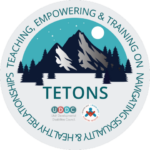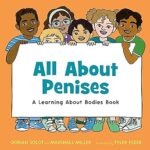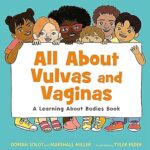

Confidence and Safety: Early Body Education for Your Child with a Disability (Ages 6-8)
As parents, we want our children to grow up feeling confident, safe, and informed, especially when it comes to their bodies and relationships. If you’re raising a child with disabilities, you may find that these conversations can feel even more important and sometimes a bit overwhelming.
In this blog post, we’ll explore how to talk to your child (ages 6–8) about sexual health in a way that’s age-appropriate, respectful, and empowering. This stage of childhood is an ideal time to lay the foundation for body awareness, emotional health, and healthy relationships.
Early Puberty: What to Know
Did you know that children with disabilities are more likely to experience puberty earlier than their peers? According to the American Academy of Pediatrics, children with neurodevelopmental disabilities are generally up to 20 times more likely to begin puberty earlier than their typically developing peers. For some girls, changes may start as early as age 6, while boys might begin around age 9. These shifts can bring emotional and physical changes that can feel confusing for a child.
Here’s what can help:
- Watch for early signs like mood swings, body odor, or growth spurts.
- Check in with your child’s doctor if you notice early changes. They can offer guidance and support.
- Start simple conversations early about body changes, hygiene, and growing up.
By gently introducing these topics now, you’ll help your child feel more prepared and less anxious when changes happen.
Encouraging a Healthy Body Image
Body image starts to form early in childhood. The way we talk about bodies, our own and others’, can influence how our children see themselves. Here are some simple but powerful ways to build a positive body image:
- Avoid comparisons: Don’t compare your child’s appearance to others, even as a compliment.
- Model positive self-talk: Speak kindly about your own body in front of your child.
- Celebrate the whole child: Compliment their strengths, creativity, kindness, not just their looks.
- Focus on health: Talk about feeling strong and healthy instead of focusing on appearance.
- Teach media literacy: Explain that many of the images they see online or in videos are edited and not realistic.
- Honor identity: Encourage pride in your child’s race, culture, and abilities. Celebrate their unique community and background.
These small, everyday messages can make a big impact on how your child sees and values themselves.
Talking About Anatomy and Reproduction
You might be wondering if it’s too early to talk about reproduction. The answer? It’s a great time, as long as the information is age-appropriate. Kids are naturally curious, and your child is likely to have questions.
Here’s how to keep it simple:
- Use correct terms for body parts.
- Explain that all living things reproduce, and that this is part of how life works.
- Focus on facts, not fears.
- Let your child know they can come to you with questions anytime.
The more open and calm you are, the more likely your child will come to you when they’re curious. If you need help with language or examples, Planned Parenthood offers clear, age-appropriate anatomy resources for parents.
Teaching Healthy Relationships and Social Skills
Kids learn how to build healthy relationships through guidance and practice. Between ages 6 and 8, children are developing their sense of empathy, friendship, and emotional understanding. Teaching social-emotional skills now helps them build strong connections later in life.
Here are a few ways to guide your child:
- Talk about respect—what it looks and feels like.
- Help them name their emotions and express them safely.
- Encourage kindness and empathy in friendships.
- Practice talking about boundaries and consent in everyday situations (e.g., “Ask before hugging”).
Children with disabilities especially benefit from clear, repeated lessons in social interaction. With your support, they’ll gain confidence in understanding their feelings and relationships.
Final Thoughts: You’re Their Safe Place
By starting these conversations now, you’re helping your child feel secure in their body and confident in their relationships. You don’t have to have all the answers—you just need to be open, honest, and supportive.
Remember: You are your child’s most trusted guide. Your calm presence, clear information, and loving encouragement can help them navigate the road ahead with confidence.
Looking for more resources? Stay tuned for future blog posts covering topics like puberty, consent, and online safety for kids with disabilities.
If you found this post helpful, feel free to share it with other parents or caregivers who might benefit!
ADDITIONAL RESOURCES:

All About Penises: A Learning About Bodies Book
By Dorian Solot & Marshall Miller

All About Vulvas and Vaginas: A Learning About Bodies Book
By Dorian Solot

It’s Not The Stork! A book about girls, boys, bodies, families, and friends
By Robie H. Harris
Resources for Guardians:
A 38-minute video for guardians on puberty, disability, and the journey to adulthood. https://utahparentcenter.org/journey-to-adulthood-video/







